Optimise your sports nutrition and performance with insights from the experts who work with elite athletes.
Sports Nutrition is about consuming a diet that supports the needs of those who participate in sporting activity, so it tends to be more performance focused when compared to the wider field of nutrition.
Nutrition has a huge effect on 3 main components that are important to athletes:
The cornerstone of any diet. It is critical for energy levels, well-being, appearance and injury. We achieve health through consuming foods that are good for us and minimising those that are not.
We all need some fat on our bodies. For athletes additional fat is dead weight they have to carry around. This makes them less powerful and causes greater impact for the joints, which in turn increases risk of injury. Therefore, most athletes need a diet that makes them lean.
Food is the fuel we use to create energy to run, kick and jump. If an athlete starts to run out of fuel, they cannot run as far or as fast, and they are more likely to get injured or make bad decisions.
Whilst our specific goals can be very personal, they generally fall into three categories:
Poor weight maintenance is probably the most dominant risk to health in the Western world, with risk factors relating to diabetes, metabolic disease and obesity, to name just a few. There is evidence that the risk of some inflammatory diseases, such as rheumatoid arthritis, increases with a poor diet.
At the core of improving health is a balanced diet that’s rich in whole foods, vegetables, salads, fruits, fish, nuts and seeds, and low in artificial and highly processed ingredients.
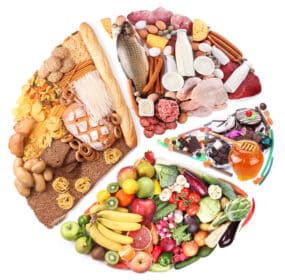
Joint health is crucially important to any athlete. Our joint tissues are primarily made out of a substance called collagen. Studies have shown that we can increase collagen synthesis by consuming food or drinks containing gelatine and vitamin C.
Excess fat is ‘dead weight’ that our bodies have to carry around and causes greater impact on the joints. It is also a risk factor for joint-affecting diseases like osteoarthritis. Therefore, a nutritionally balanced diet that helps maintain a lean physique is important for athletes.
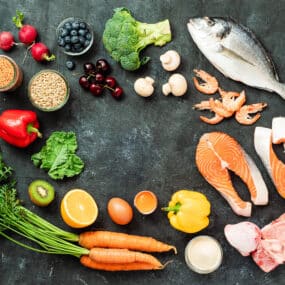
A well-balanced healthy diet will help ensure the body gets the nutrients it needs to prepare for, and induce, good quality sleep.
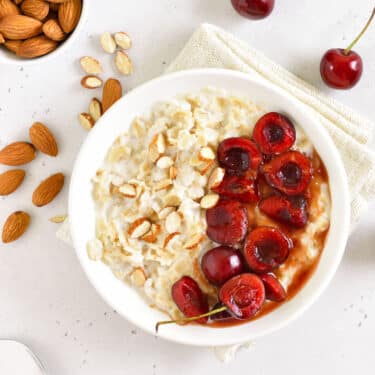
Carbohydrates promote more of a sleep state than protein does. So the general recommendation when approaching bedtime is to lean more towards carbs with a smaller amount of protein. Something like a small bowl of oats.
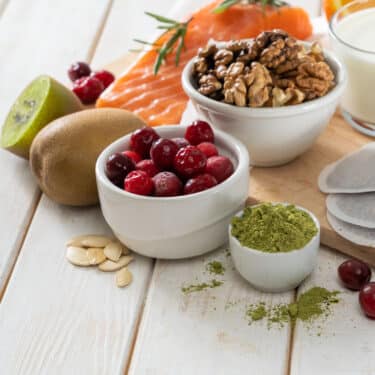
Certain foods are higher in melatonin (a hormone that promotes the natural sleep cycle) and tryptophan (a precursor to melatonin production). Research suggests that foods such as milk, tart cherry, kiwi fruit, fatty fish and nuts can help promote sleep.

Many supplements are available that are designed to boost levels of tryptophan and melatonin, as well as other nutrients thought to aid sleep health. Sleep supplements can offer a convenient way to explore potential benefits of increasing specific nutrients.
Stimulants like caffeine should be avoided several hours before bedtime
Alcohol is known to disrupt sleep cycles, so is best consumed in moderation or avoided altogether.
Eating too close to sleep engages the digestive system just when many of the body’s functions are shutting down to prioritise restorative sleep.
To perform at our best we need mental focus and clarity. When we’re mentally alert it feels better and we make better decisions, quicker. This helps us get in ‘the zone’ to push harder, to generate that competitive edge and avoid injury.

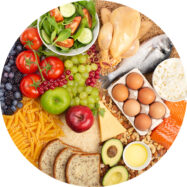

When we exercise, especially when competing, our body generates chemicals like adrenaline, dopamine and endorphins that energise our body and mind, putting us in a heightened state of alertness.
Conversely, too much can make us feel invincible, or jittery, putting us at risk of pushing our body beyond its limit and causing injury or illness.
For most of us, an active lifestyle, good nutrition and good quality sleep will provide us with what we need to be mentally alert when we need it.
Gaining muscle is one of the most common sports nutrition goals, whether it be for performance, body image or returning from injury. To increase muscle mass some form of strength training is important but the correct nutrition is also critical.
Resistance training stimulates the muscle to grow. Training regularly, progression and variation continually stimulate growth.
Energy intake must be greater than energy expenditure in order to build muscle tissue. Aim for a small (5-10%) energy surplus.
Protein rich foods provide amino acids which are used to build new muscle tissue. Aim to consume 1.6-2.2g protein per kg of body mass.
Eating protein rich foods every 3 to 4 hours can help to repeatedly stimulate the muscle to grow.
Whey protein can provide rapidly available amino acids after resistance training. Daily creatine supplementation (5g) can aid muscle strength and promote growth.
Aim to keep resistance training away from, or after, endurance training sessions as this may interfere with the muscle building process.
Muscle is denser than fat, so what appears to be a leaner physique may actually weigh more.
Here, we are looking at weight loss in terms of reducing excess fat. For most athletes, excess fat is dead weight that adversely affects performance.
To achieve a calorie deficit eat and drink fewer calories than you burn. Fat has the highest calories and sugar tends to be energy dense, so avoid foods high in these.
If the body isn’t getting the good nutrients it needs for basic functioning, it keeps on sending out hunger signals. So a good quality diet helps you eat less.
Protein has the lowest net calories of all the macronutrients and the highest satiety nutritional element that we get. So it makes us feel fuller sooner and for longer.
Protein boosts our metabolism slightly when we eat it, particularly if we combine it with some form of strength training, which burns more calories.
One of the best ways to lose weight is to lead an active lifestyle. Regularly do some exercise.
Consume some carbohydrates to give you the fuel you need to perform your activity well. Reduce your intake when you're not active or coming up to an important event or competition
Being lean is important to athletes because fat is essentially dead weight and therefore can hamper your speed, endurance & increase the risk of injury. To maintain your desired weight:
Avoid regularly take in more calories than you burn. Athletes can generally eat more because they burn more energy through exercise. Fat has the highest calories and sugar tends to be energy dense, so avoid foods high in these.
Scale carbs to activity levels. They are required around competition and hard training to fuel performance. When you are not active, generally eat less carbs, so any excess is not converted into fat.
Protein provides the building blocks of muscle and therefore helps us stay lean by boosting resting metabolism. It also has a high satiety so we feel fuller sooner and has the lowest calorie load by the time it is digested.
Eat high fibre foods like wholegrain carbs, vegetables and fruit. Fibre makes us feel fuller sooner, releases energy steadily, thereby sustaining hunger, and facilitates digestion.
Different types of food provide different amounts of energy per unit of weight (energy density) and release it at different rates once it’s been consumed.
Carbohydrates provide the main source of energy for the body and can be used immediately following consumption, or stored in the liver for later use.
Important for maintaining performance throughout long endurance activities.
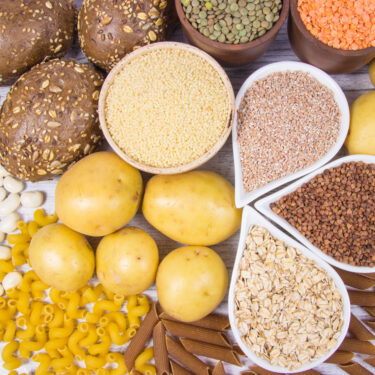
Target whole food sources from oats, brown pastas and breads, healthy cereals like Granolas and starchy vegetables like potatoes.
Can help performance for shorter bursts of high intensity actions and for providing a quick, short boost if energy levels are falling during longer endurance activity.
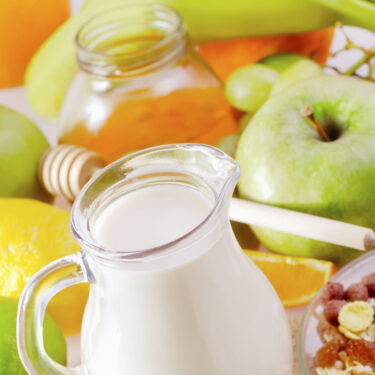
Healthy foods high in simple carbohydrates include milk, fruit, honey and some vegetables.
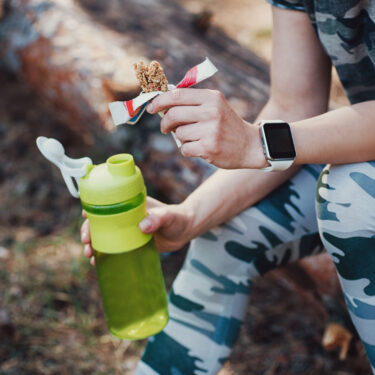
Supplements, like energy bars, gels and drinks can provide a convenient way to access a quick hit of energy.
Hydration is very important for optimal performance. Dehydration will reduce levels of performance and mental clarity. Simply drinking to your thirst levels will be adequate for most people.
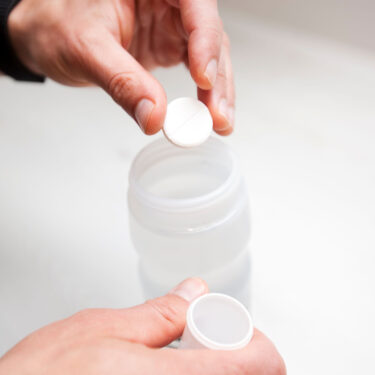
When needed, hydration aids like electrolyte tablets can be used to retain more of the fluids that you consume and maintain a stronger thirst to encourage drinking fluids.
When it comes to hydration, caffeinated drinks generally aren’t recommended as caffeine has some dehydrating properties.
Nutritional stimulants like caffeine can provide a cognitive boost to make us a bit more alert both mentally and physically. In moderation this can aid performance.
Consume too much though and it can tip you into being over-hyped, feeling anxious and even experiencing physical jitters.
Any caffeine intake should be balanced with hydration needs, since it has some dehydrating properties.
Central to sports nutrition are what’s called essential nutrients. These are nutrients that either the body cannot produce itself, or cannot produce in sufficient quantities. So we have to get these essential nutrients from the food and drink we consume.
Essential nutrients are categorised as micronutrients or macronutrients.
Macronutrients are essential nutrients that are needed by the body in large amounts and form the bulk of what we eat in our diet.
The three primary macronutrients – carbohydrates, protein and fats – give us energy. Macronutrients that don’t provide us with energy are fibre and water.
Micronutrients are essential nutrients that are needed by the body in much smaller amounts than macronutrients and so are naturally contained in our diet in much smaller amounts.
Micronutrients are essential to all the vital processes carried out within the body.
Carbohydrates (also known simply as carbs) are essentially sugar molecules that break down into glucose (often referred to as blood sugar). They provide the main source of energy for the body and can be used immediately following consumption, or stored in the liver for later use.
Repeated high intensity actions rely on carbohydrates, since fat and protein cannot produce energy fast enough to fuel such actions.
There are three main types of carbohydrates: sugars, starches and fibre.

Sugars are the most basic form of carbohydrate, known as simple carbohydrates. The body breaks down simple carbohydrates very quickly.
Creates a temporary spike in blood sugar, providing a quick burst of energy, followed by a significant drop in energy.
Found in:
Additives in processed foods and drinks. Also naturally in milk, fresh fruit, honey and some vegetables.
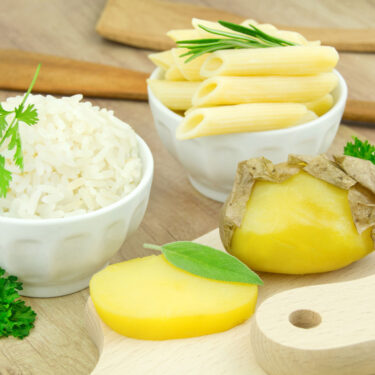
Starches are considered complex carbohydrates, as they are made up of many simple sugars. The body has to break down to use them, so takes longer than sugars.
Absorbed by the body much more slowly than sugars and provides a more gradual release of energy over time.
Found in:
Grain foods, such as rice, pasta, cereals and bread, and certain vegetables like potatoes.

Fibre (also known as roughage) is a type of complex carbohydrate found in plant based food and cannot be completely broken down by our body’s digestive system.
It makes us feel fuller for longer and essential for aiding digestion, regulating blood sugar and lowering cholesterol.
Found in:
Wholegrain foods, such as brown rice & pasta, wholemeal bread and vegetables like potatoes with skins.
Aim to consume healthy carbs that are wholefood based, higher in fibre and lower in sugar.
Protein helps us stay slim because it has low per unit calories, appeases appetite and boosts our metabolic rate. If you perform strength training, having protein afterwards helps to repair muscle damage. This helps develop muscle mass and therefore improves strength and power.
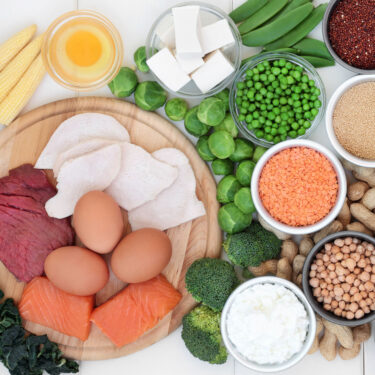
Protein is commonly associated with meat but is found in all sorts of food sources, such as beans, grain, dairy, eggs, tofu and meat substitutes.
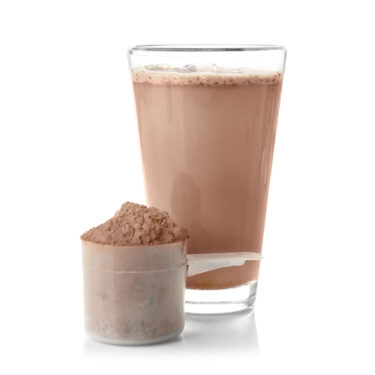
Sports participants can also use some protein supplements for competition and strength training in order to maximise muscle synthesis.
Fat can ring alarm bells but it is an essential part of the diet. Fats are essential in many health factors and contribute significantly to energy production. However, not all fats are made equal.
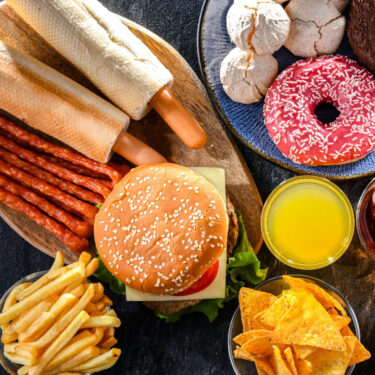
Saturated fat, which is found in fatty meats, dairy and many confectioneries, can lay deposits in our heart & arteries, increasing the risk of heart disease and stroke.
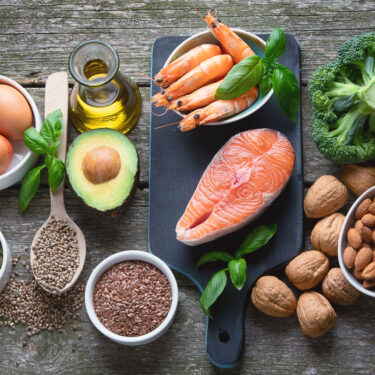
Unsaturated fats, found mainly in plant and fish oils, are good for our health. In particular, Omega-3 fat, found in fish, nuts, seeds, olive & rape seed oil & avocados, improve our heart and brain health and are anti-inflammatory.
As little as 2-5% dehydration has been shown to be detrimental to our physical capacities, concentration and injury risk. In hot, humid temperatures, dehydration can present a significant risk for heat stroke and even death.
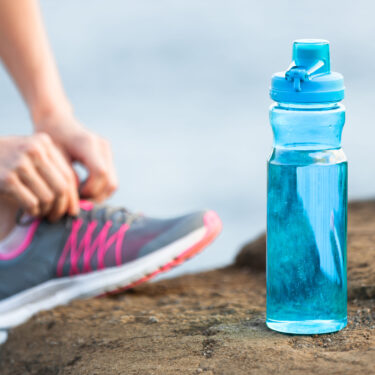
Drinking water to your thirst levels will be adequate for most people exercising and participating in sport. Water can be flavoured with sugar-free fruit cordial or squash.

Athletes also commonly use drinks containing electrolytes, such as sodium & potassium, which aid retaining fluids and help replace those we lose in sweat.
Ideally, we would source all our nutritional needs from a well-balanced, whole-food diet but, where this isn’t possible, high quality supplements can help ensure we maintain optimum nutrient levels.

Supplements or ergogenic aids are used widely within sport because they contain a concentrated or convenient source of a nutrient.

Supplements can be particularly beneficial to athletes in the run up to, during and after, a particularly intensive training session or competitive event.
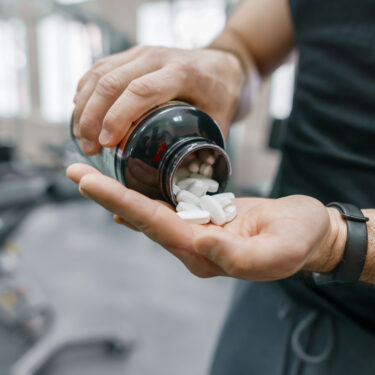
Try new supplements when it doesn't matter, not before an important event. See how your body reacts to it and find what works best for you.
Caution should always be used with supplements to ensure that they are not contaminated with banned substances - professional athletes should always look for the Informed Sport logo.
Many supplement reported benefits have not been backed by peer-reviewed evidence, so it’s important to research a product, and what it contains, before taking it. If in doubt, or if you are on any medication or have any medical conditions, you should consult your medical practitioner and/or qualified nutritionist.
How our bodies react to different nutritional elements, and quantities, is an individual experience. Test what supplements, dosing and timing works best for you, keeping within the manufacturer's dosing guidelines.
What nutrition we consume is only part of the story.
To enable us to perform at our best, when we consume nutrition is just as important.
To power you through an intense activity or event that involves long endurance exercise, it's what you eat the day before that's most important.
That gives your body enough time to transfer the nutrition from your digestive system into your muscles.
It also means that around the time that you're going to exercise you don’t have digestive discomfort.
For the average person just doing about an hour's exercise, you don't really have to worry about refuelling while you're exercising or just before. It’s only when you go into the higher ends of performance where you're really pushing the body for extensive periods.
If you're getting above an hour and a half up to two hours, the recommendation is to have between about 30 grams of carbohydrate per hour, up to the 'ultra elite’ athlete who might have about 90 grams per hour.
After an intensive event, before hitting the hot tub, it's important for elite athletes to re-energise with some carbohydrates.
But for most people, unless you're doing really high end performance that is going to last longer than an hour, you don't really have to worry about taking on carbohydrates.
Most of us don't feel like eating just after exercise, so a nice carbohydrate solution or something like a milkshake, will provide some refreshment with some carbohydrates and a bit of protein.
Rest days provides an opportunity turn our attention to nutrition for our general health.
Compared to what we need when performing, if we reduce the amount of carbohydrates we can increase the amount of foods to do with health and to do with body shape.
We can also take on slightly less calories as well because we're not burning energy with high activity.

Elite athletes often use carb periodisation. Their optimal nutritional needs vary depending on when they are training and competing.
Amateur and semi pro athletes can benefit from the same principle, taking on a few more carbohydrates on days when active and promote the health and lean muscle aspects to their diet on days they are less active.

Most people should snack 1-2 times per day. For athletes and active people, it can be much more.
Snacking helps drip feed the body nutrients, which is often better than providing less regular bolus amounts.
Aim for healthy snacks, without highly processed ingredients, higher in protein than normal confectionery snacks.
Around 55-60% of our body’s are constituted of water so it’s clear to see that hydration is important to our health and wellbeing. As little as 2-5% dehydration has been shown to be detrimental to our physical capacities, concentration and injury risk.
See our guide to Sports Nutrition for Injury Prevention and Recovery for a deeper dive into how to use nutrition to help prevent, and recovery from, injury.
So you’ve made it to the end of this sports nutrition guide.
What now?
You should now have a good understanding of how nutrition affects the body and sports activity. We hope this empowers you to make some positive changes to your own nutrition routine.
If you’re not sure where to start, try focusing on just one point that resonates with your own experience and experiment to see how individual changes make you feel.
Find more expert insights on getting started with sports nutrition in our growing collection of sports nutrition articles.
You can also reach out to our expert contributor, Dr Tom Little. See Dr Tom Little’s profile page for details.